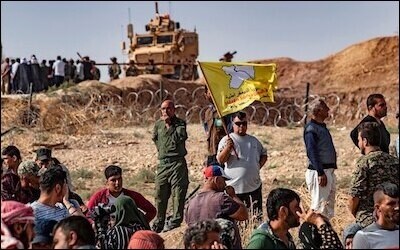Ofra Bengio, Tel Aviv University professor and head of the Moshe Dayan Center’s Kurdish studies program, spoke to participants in a January 18 Middle East Forum webinar (video) about the challenges Kurds face in the region.
Bengio’s 2018 book Kurdistan’s Moment in the Middle East was published on the heels of unprecedented achievements by Kurdish minorities in Turkey, Syria, and Iraq. In Turkey, the Kurdish Peoples’ Democratic Party (HDP) become the third largest group in parliament after winning an unprecedented 13% of the vote. In Syria, the Kurds had defeated ISIS and established strong autonomous enclave with American support. In Iraq, where Kurds have enjoyed autonomy for approximately three decades, the Kurds defeated ISIS there, conquering some 40% of the country and in 2017 held a referendum for independence.
But swift reversals followed. Turkey has since jailed large numbers of Kurdish leaders and activists. Turkish Kurds are in “survival mode,” said Bengio, with most of their leaders imprisoned and facing persecution.
Syrian Kurds demonstrate against Turkish forces in the town of Ras al-Ain in Syria’s Hasakeh province on October 6, 2019. (AFP) |
In Syria, Turkey repeatedly attacked the Kurdish region and carved off pieces of it, beginning with the area of Afrin that the Kurds had conquered from Da’esh. Syrian Kurds are struggling to preserve what little autonomy they have left while fighting three enemies: Turkey, the Syrian government and what remains of Da’esh.
In Iraq, the Kurds lost much of the area conquered from Da’esh. The Iraqi central government in Baghdad, under pressure from Iranian-backed Shia militias, has withheld Iraqi Kurdistan’s share of the federal budget, leaving the Kurdistan Regional Government (KRG) cash-strapped and unable to pay its civil servants. Additionally, Baghdad is “trying to suffocate” Kurdish autonomy by refusing to hold a promised census and referendum in Kirkuk and other disputed areas between Baghdad and the KRG, denying the population a voice in determining its future.
However, the most significant problem in Iraqi Kurdistan is the four-decade rivalry that persists between two elite families and their political parties. The power struggle between the Barzani family and its affiliated Kurdistan Democratic Party (KDP) on the one hand, and the Talabanis and their political party affiliate, the Patriotic Union of Kurdistan (PUK) on the other, is compounded by their regional partners. The Barzanis are aligned with Turkey, and the Talibanis with Iran. Those partner countries foment division between the two rival families and their parties.
There are also problems between the Turkish Kurdish PKK (Kurdistan Workers’ Party) and the KDP. With bases located in Iraqi Kurdistan, the PKK has launched attacks against Turkey from within Iraqi Kurdistan, while Turkey has established bases in Iraqi Kurdistan and launched attacks against the PKK. Bengio said the attacks have “jeopardized the stability of the Kurdish region.”
All three regions are suffering socio-economic problems worsened by COVID.
Noting that the Trump administration “betrayed” Kurds in Syria, Iraq, and Turkey, Bengio is hoping that the Biden administration will change course. Before becoming president, Biden was “the most pro-Kurd” major politician in the U.S., said Bengio, often meeting with Kurdish leaders and endorsing the federalization of Iraq.
The Kurds are “courageous fighters, but not so strong in diplomacy and politics.” |
The Kurds are “courageous fighters, but not so strong in diplomacy and politics,” admitted Bengio. Nevertheless, they are deserving of American support and have much to contribute as allies. In particular, she argued, it is in America’s interest to help resolve the problems between Baghdad and the KRG and build a “strong [Kurdish] government and stable Kurdish region” as a barrier to Turkish and Iranian domination of Iraq. The Kurds have always been the most reliably pro-American partner in Iraq. Should American forces leave Baghdad, the safest area for their relocation would be in the KRG autonomous enclave, “the most stable and ... secure area in Iraq, maybe in the whole region.” A stable Kurdish region rich in gas and oil would also be appealing for American entrepreneurs.
Marilyn Stern is communications coordinator at the Middle East Forum.





